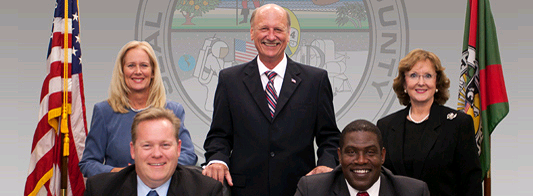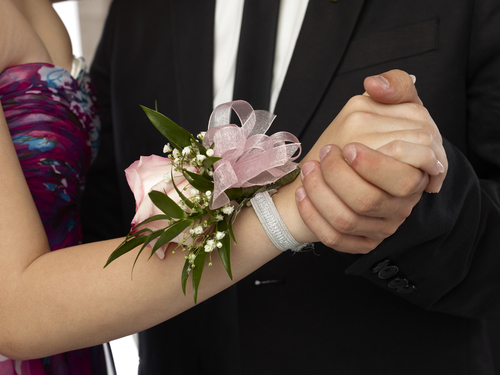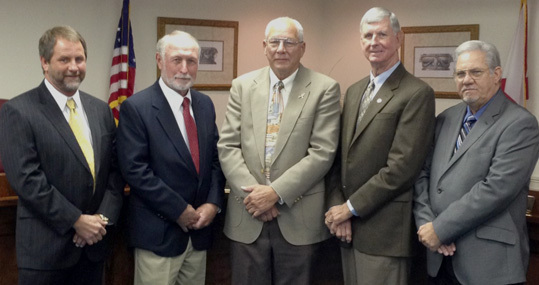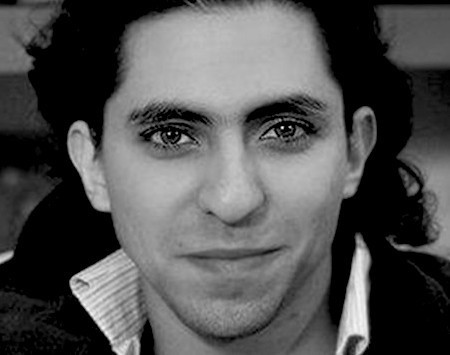Hemant Mehta's Blog, page 1881
November 9, 2014
Oklahoma Officials Won’t Release Security Footage of Man Driving Into (and Destroying) Ten Commandments Monument
A couple of weeks ago, Michael Tate Reed Jr., a Christian who has been “diagnosed with Bipolar and… was off his medication,” drove a car into the Ten Commandments monument on the Oklahoma Capitol lawn.
Ten Commandments monument in Oklahoma (via James Nimmo)
In a strange (but perhaps expected) twist to the story, the Department of Public Safety has refused to release security footage of the crime. Even though an open records request was made for it, and even though the cameras are technically paid for by the people:
“DPS considers the information requested to be confidential and denies access to this information,” the agency wrote in an Oct. 29 letter.
The department also denied a second request, filed after a new state law went into effect that is supposed to help make public safety video and audio recordings more accessible to the public.
The agency argues it is excluded from the state’s open records law, and also that it has the right to keep the video private because it involves the placement and configuration of security equipment.
But any visitor can look up and see cameras at the Capitol, said Joey Senat, an associate professor of journalism at Oklahoma State University who specializes in the open records law. The state seems to make no effort to camouflage its cameras, he said.
What I don’t understand is what they’re trying to hide. We already know what happened. What other details could possible make the story worse? If the placement of cameras really is the issue, why not just release footage from one camera? (Since it’s apparently not even hidden.)
State officials have already faced a couple of different legal challenges because of this monument; do they really want any more?
She’s Afraid of Losing Her Atheist Husband
Seen at PostSecret:
I wonder how many spouses of atheists have that same fear.
To any of you who have religious husbands or wives, what do you say in response?
November 8, 2014
Apply for the 2015 American Atheists Scholarship!
If you’re a college student (or a high school senior about to enter college), American Atheists has some money for you!
If you’ve done any activism this past year individually or with a group, if you’ve written letters-to-the-editor which were published, if you were an outspoken atheist in some way or another, you should think about applying.
The winner receives a $1,000 scholarship. The four runners-up receive $500 each. And there is also a scholarship for LGBT activism worth $500 (which is also open to straight allies). As an added bonus, all applicants get a year-long free membership into AA and winners will receive free admission to AA’s 2015 national conference in Memphis this April.
Please summarize your activism in a 500- to 1,000-word essay. Detail your activities, motivations, and the importance of atheist activism. Please note that merely writing an essay will not win you the scholarship. This is about activism, and your essay should be about your activism for the cause of atheist civil liberties, the separation of church and state, or presenting a positive view of atheism to the general public and your fellow students and faculty.
The deadline is February 1, so start applying! As a former scholarship recipient, I can tell you that AA cares more about your activism than your writing skills. Show them what you’re doing to spread reason and get people thinking rationally!
All the information you need is right here. Good luck!
Brevard County (FL) Commissioners Once Again Vote to Block Atheists from Giving Invocations at Meetings
Back in August, we learned that the Brevard County Commissioners in Florida (below) had limit their invocations to “faith-based” groups — and the Central Florida Freethought Community could only speak during the “Public Comments” portion of the evening.
The Commissioners sent a rejection letter to CFFC and everything. While the atheists are still working out their legal options, the Anti-Defamation League sent its own letter urging the Commissioners to reconsider:
The Commission’s decision to prohibit an atheist from delivering an invocation would most likely violate the standards set forth in the U.S. Supreme Court’s recent decision in Greece v. Galloway…
Although this decision significantly broadens the types of opening prayers at meetings of local legislative bodies, invocation practices are not without limitation. Indeed, the Court required that a legislative body must implement a non-discrimination policy with respect to prayer givers. This means that the person who gives an invocation or prayer — whether a public official, member of the clergy, or an ordinary citizen — cannot be denied the prayer opportunity based on his or her faith, including a minority religion or atheism.
And the Commission’s response to that? A giant, collective “Up yours.”
This Board has no intention of violating the U.S. Supreme Court by following your flawed interpretation of the Court’s ruling in the Town of Greece case.
The Commission says in its letter that allowing the atheists to deliver an invocation would “show hostility toward the faith-based community,” because atheists, I guess, are all assholes. (I guess none of the Commissioners have bothered to look at the perfectly harmless invocations on the CFFC’s website.)
I’m shocked they’re doing this. And this is after asking the county attorney for advice! They need a better lawyer.
I asked CFFC’s David Williamson what he thought about all of this and his response was just perfect:
Of the many beliefs shared by residents of Brevard County, the idea that this Commission represents all its citizens fairly might be the one we should take on faith since it clearly lacks evidence to support it.
I just can’t imagine this decision by the Commissioners will stand. The question is when, not if, they’ll be hit with a lawsuit.
(Thanks to Brian for the link. Portions of this article were published earlier)
Why Our Kids Aren’t Going to Church Dances
Earlier this month, blogger and concerned mother Becky Blackburn published a post in the Deseret News (I was hoping it was the Dessert News, but we can’t always get what we want, can we?) called “Why aren’t our kids going to church dances?”
Blackburn recounted a harrowing tale of the time she tried to strong-arm her 15-year-old son into having The Best Night Ever at his church dance. While that sounds like general “Parent of a teen” fodder, her article takes an odd turn right out of the gate:
I asked my son if he was going to go to the church dance, and he looked at me like I had asked him to jump over the moon. So I called one of his friend’s moms to see if she was making her son go, and a few hours later, a group of boys, some more reluctant than others, were on their way to the church without a basketball.
A miracle indeed.
Before my son left, my husband and I offered to pay him a dollar for every girl he asked to dance. He shrugged his shoulders and grunted, which of course means “yes” for a 15-year-old, and we were elated that we had thought of bribing our son to be a gentleman. Innovative parents were we.
As a childless person, I’m kind of struggling with this concept. I get that coercing kids to do, say, chores is pretty standard, but I’m not sure how I feel about trying to force an interest in the opposite sex through bribery.
After her son texted her about the ill-attended dance (“There are like 20 people here”), Blackburn seemed extremely concerned about the fact that the young’uns aren’t slow dancing enough. On one level, it sounds a bit like a woman lamenting the fact that something she so enjoyed in high school is no longer relevant to her own kids, which is understandable if not a little Grandpa Simpson-y.
But then she kind of begins digging a good-ol’-days hole that goes far beyond her own childhood:
Why don’t kids pair off for a dance anymore? Why is it so hard for boys to ask? Since asking a girl to dance is such a gallant thing to do, and since most 15-year-old boys are dying to be gallant, I don’t see what the problem is.
There are many words I could use to describe 15-year-old boys. “Gallant” isn’t on the list. (And where does she get her vocabulary from? Highlights for Children?)
What can we do about it? I have an idea that will solve this whole problem. Back in the times of Jane Austen, a lady was given a card that allowed fellows to reserve certain dances with her during the night. Those were the good ol’ days, when there were so many men wanting to dance with a girl that she had to make appointments. If a man asked a girl for the first two dances, then whoa! He was pretty into her. She could go home and put that card under her pillow, kissing his name to her heart’s desire!
How… quaint. What she sees as the “good ol’ days,” I see as a time when women had so little autonomy that they had to literally wait for men to come fetch them from their corners so they could enjoy the party instead of sitting quietly and being demure. At no point have I ever turned over my ability to select who I want to “dance with” (or talk to or date or marry) in exchange for gallantry.
Blackburn goes on to suggest a reinstatement of the dance card, but with a fun new coercive twist!
Maybe we need the dance cards now, but I think it’s the boys’ turn to get them. After a boy asks a girl to dance with him, she signs his card. Three signatures means he gets access to the refreshment table. Since his best friend Joe has been known to down six of Sister Brown’s famous peanut butter cookies in under two minutes, he quickly finds the girl closest to him, mumbles something unintelligible and points to the dance floor. She smiles at him and pulls out her pen.
Maybe 10 dances get him a free trip to Taco Bell.
How’s that for a pick-up line? “Wanna dance? If you do, I’ll be a tenth of a way closer to a burrito.”
Look, I understand that I come from a very (very very very) different background from Blackburn, but I don’t see what she’s trying to accomplish. Is she worried that because her 15-year-old isn’t slow dancing with girls, he has no interest in them? Or that the only way boys and girls can communicate (or court) is via the long-lost art of the slow dance?
Moreover, I’m not convinced that making social interactions a chore is the way to anyone’s heart. I mean, look at this:
Parents could be a great support. When the boy comes home, he better have 15 names on his dance card or it’s going to be 15 days before he sees his Xbox again. They may even have to call a few of the girls for verification, just to make sure the signatures aren’t forged by a few of the buddies who proudly claim they can write like a girl, but I’m pretty sure the system will work.
If the boy didn’t hate dancing already, mom’s phone calls to the girls’ homes should do the trick.
Can anyone with an LDS background/knowledge base shed some light on what the hell is going on here?
More interestingly, perhaps, is the fact that the title of Blackburn’s piece is never really addressed again: Why aren’t our kids going to church dances?
I have my suspicions. Perhaps dances outside of school are becoming antiquated, especially as young people have other means of socializing without the scrutinizing gaze of church leaders. I mean, the dances that she yearns for (forced slow dance after forced slow dance) sounds torturous to me, so I can’t blame the teenagers for wanting to avoid that mess.
One last thing to note is Blackburn’s summary of her own article:
Youth dances are becoming less popular as boys no longer ask girls to dance. Many youths are just sitting around at the dances or dancing in big groups, making dances less fun.
A) Nothing makes you sound older than calling young people “youths,” Liz Lemon.
B) Dancing in big groups is at least 50,000 times more fun than slow dancing.
Maybe kids aren’t going to church dances because their parents’ ideas of what’s “fun” hasn’t been “fun” since America gained independence. And I bet it wasn’t fun then, either.
(Image via Shutterstock)
Vladimir Putin is The Advocate‘s 2014 Person of the Year
The Advocate, the oldest LGBT magazine in the country, has announced that its 2014 Person of the Year is Vladimir Putin, the horrifically homophobic president of Russia and a committed opponent of all things pro-LGBT.
The yearly recognition is not necessarily meant to highlight someone who has made great strides for LGBT rights (an obvious fact, based on this year’s choice), but rather the person who has had the most profound influence on LGBT people in the previous year. Much like TIME magazine’s Person of the Year has, in the past, gone to anti-justice leaders (including Putin), sometimes the Person of the Year is a really, really influential bad guy. And Putin’s toxic, even deadly influence on LGBT people needs no explanation.
The magazine cover breaking the news even illustrates the Russian president as a new-age Adolf Hitler, with the help of some strategic headline placement:
I wrote about the Person of the Year last year, when The Advocate gave the honor to Pope Francis for positive reasons. Shining a light on the Pope’s iconic “Who am I to judge?” comment and his vaguely pro-LGBT actions, The Advocate then said:
We named him Person of The Year because he has challenged both church leaders and parishioners to think about why they oppose LGBT rights, whether it’s worth the effort to do so when there are real problems the church must address, and whether being antigay is part of Christ’s teachings.
A year ago, I was highly critical of the magazine for calling Pope Francis, the leader of one of history’s most homophobic and transphobic institutions, a potential game-changer for LGBT people. I have some criticisms of their decision this year, too, but for different reasons.
Here’s a brief excerpt from The Advocate’s article explaining Putin’s selection:
“Imagine a boy who dreams of being a KGB officer when everyone else wants to be a cosmonaut.”
This quote appears early in The Man Without a Face, Masha Gessen’s 2012 biography of Vladimir Putin. It’s as succinct and illuminating a characterization of the Russian president as you’re likely to find. The KGB, after all, perfected the thuggery, espionage, and aimless bureaucracy that are hallmarks of Putin’s regime. The agency’s crackdown on dissidents offered a blueprint for Putin’s own strongman excesses. That he aspired to such a career as a child tells us something useful about his psychopathology: This is a man hardwired to intimidate.
Nowhere is this tendency more apparent than in his crusade against LGBT Russians. Since winning a third term in 2012, Putin has become ever more autocratic, and his antigay ideology ever more extreme. In June 2013, he signed the infamous antigay propaganda bill that criminalizes the “distribution of information… aimed at the formation among minors of nontraditional sexual attitudes,” with nontraditional meaning anything other than heterosexual. Individual violators are fined anywhere between $120 and $150, while NGOs and corporations can incur fines as high as $30,000. International outrage flared in the months before the Sochi Olympics, in response to which Putin reassured the gay and lesbian community they had nothing to fear as long as they left Russia’s children in peace.
Such incendiary rhetoric is a staple of Putin’s political playbook. And in Russia, where the majority of media are state-owned, there’s little public pushback. Tanya Cooper, a researcher with Human Rights Watch, argues that the average Russian is unlikely to seek diverse viewpoints. “When politicians, celebrities, and respectable journalists in Russia tell you repeatedly, either on television or in print, that gay people are perverts, sodomites, and pedophiles, you just believe it,” she says.
The magazine also rounded up nine honorable mentions for Person of the Year, all of them LGBT advocates, not opponents. Here’s a quick breakdown of who they are and what they’ve done:
Tim Cook, CEO of Apple, who came out publicly for the first time just a week agoLaverne Cox, the Orange Is The New Black actress who’s become a shining advocate for the trans rights movementMichael Sam, the first openly gay football player to be drafted by the NFLNeil Patrick Harris, beloved performer and model gay dadEllen Page, who came out fiercely at a banquet for the Human Rights CampaignThe United Church of Christ, one of the most accepting churches for LGBT peopleRobin Roberts, cancer survivor and openly gay Good Morning America anchorJill Soloway, creator of the groundbreaking transgender-themed show Transparent Anna Paquin, one of the year’s most vocal advocates for bisexual visibilityNow that is a solid list of people who represent the year in (American) LGBT issues.
I think what bothers me so much about The Advocate‘s decision is that the voice of an anti-LGBT person is being held in higher regard than that of any pro-equality human on the planet. The nine finalists for this title are exceptional advocates for LGBT rights, many of them newly out and already bringing amazing visibility to the cause. By choosing Putin over any of those individuals — and over the thousands of other amazing LGBT activists who were not named finalists — Advocate editors are saying that the homophobic tirades of one twisted politician are more significant than the work any of our people are doing.
Hell, the Advocate could have pulled a true TIME and made a group of people or even a concept into its Person of the Year. Remember The Protester? The Endangered Earth? You? I would have loved to see the magazine honor the transgender women of color who made radical strides in visibility, acceptance, and justice this year; or maybe the plaintiffs challenging marriage equality bans in half the country; or the rainbow flags flown in places from Russia to Uganda to show LGBT people’s resilience in the face of deadly oppression.
None of that’s to downplay the significance of Putin’s harsh laws whatsoever. We’ve all heard how terrifyingly unsafe Russia is for LGBT people. Lives are on the line, and we need to be paying closer attention. That said, Russia is by far not the only country where LGBT people are persecuted, jailed, or even killed for being who they are, and we can’t let ourselves forget that just because those countries don’t appear in the news as often.
But this isn’t about which country treats its LGBT community the worst; it’s about where the greatest change is happening, good or bad. And I take serious issue with spotlighting one homophobe’s actions over the contributions of every single LGBT person in the world.
This decision by The Advocate says that not a single LGBT person — or ally, or group of LGBT people and allies – influenced LGBT communities this year more than Putin did. Maybe some people think that’s true, and maybe if we’re comparing the population of Russia to the number of Transparent viewers, it is. But if an LGBT magazine won’t uplift the achievements of queer people over those of straight homophobes, who will?
The Guardian Deleted the Spot-On, Polite Comment From the “Ex-Muslims of Britain” That We Published Yesterday
On Thursday, I came across a Guardian column by Andrew Brown, titled “Why I don’t believe people who say they loathe Islam but not Muslims.” I thought it an interesting piece of sophistry, easily dispensed with, as we presumably all love or like certain people whose religious or political convictions are far from our own.
Many of the Guardian‘s readers made the same point, but none did it better than the members of the Council of Ex-Muslims of Britain, a collective that penned a single comment that rationally and politely took on Brown’s simple-minded premise. Yesterday, with the CEMB’s permission, we published that comment on this blog, verbatim, without further editorializing. Someone at the Guardian must’ve liked the CEMB’s response, too, because the comment briefly became a Guardian Pick, a little editorial attaboy to a particularly clever or insightful reader.
And then the paper deep-sixed it:
 Read the excised comment here, and marvel at how coolly argued and polite it is while it battles the obscurantist mindset of “relativist liberals” who tend to defend Islam no matter what.
Read the excised comment here, and marvel at how coolly argued and polite it is while it battles the obscurantist mindset of “relativist liberals” who tend to defend Islam no matter what.
A violation of “community standards”? I’ve read those standards, and I don’t see how a single word in the CEMB’s opinion was over the line.
Truthfully, I quite like the Guardian and support its staff’s absolute right to moderate the comments as it sees fit. But this deletion reeks. Time after time, on the matter of “Islamophobia,” the paper shows itself to be incapable of sending anything but one narrowly-scripted message, and the editors seem to have a bizarrely hard time tolerating serious-minded dissent.
If you’re going to argue what Andrew Brown wrote (it boils down to “criticism of Islam = hating Muslims”), the first group that deserves a rebuttal to that unfair and untrue charge is the men and women who’ve left Islam but not Muslim culture; who no longer live under Allah’s thumb, but who love parents, siblings, friends, and neighbors who’ve remained in the Islamic faith.
Was the comment removed because it was ultimately too close for comfort, considering the paper’s peculiarly rigid sensibilities? What was the community standard that the CEMB failed so badly to live up to? I sent the Guardian editors an inquiring e-mail and will update this post if I hear back.
Alabama County Commission Rescinds $3,000 Grant for Baptist Ministry After Atheist Group Threatens Legal Action
Last week, I posted about the Covington Baptist Association in Alabama, which wanted to draw men — manly men — to their church. They were even offered steak to men who attended their gatherings.
While the group is welcome to do all that, the problem was that the Covington County Commission (below) was giving the group $3,000 in taxpayer money to support the ministry.
The money may have been directed at renovating the building the Baptists were meeting in, not the ministry directly — so went the Christians’ argument — but it turned out the building belonged to a church. So there was no way out of this. It was government money that was being used to promote religion.
The Freedom From Religion Foundation sent a letter to the Commission Chair warning him about the illegality of sending this money.
And guess what?
Commissioner Harold Elmore, who suggested making the donation in the first place, was the same person who suggested rescinding the offer.
Commission Chairman Bill Godwin said Thursday afternoon that the Covington Baptist Association returned the county’s check before Thursday’s vote, and the check has been voided.
Smart move on their part. The taxpayers in Covington County should be thankful their money isn’t being wasted — and that the government officials aren’t doing anything to bring on a lawsuit, costing them even more.
Of course, it shouldn’t have gotten to this point to begin with… but remember. This is Alabama. We’ll take what we can get in that state.
(Thanks to Brian for the link. Portions of this article were published earlier)
High School Students Punished for Not Saying “Under God” When Leading Pledge of Allegiance Over Loudspeakers
I’ve written a lot of posts about young atheists who either don’t say the Pledge of Allegiance, or omit the words “Under God” when they do, or remain seated during its recitation.
Just about every story goes the same way: The student does one of those things and gets in trouble, an atheist group sends the school a letter reminding them the dissent is perfectly legal, and the school apologizes.
At Merrill F. West High School in Tracy, California, students in Shauna Baker’s speech and debate class are tasked to read announcements and say the Pledge over the loudspeaker in the morning.
Adrianna Teboe didn’t didn’t say “Under God” when it was her turn. She was marked down as a result.
Derek Giardina didn’t say “Under God” when it was his turn. He’s now failing the class.
“[Baker] had told me, if we don’t say the pledge properly, we’ll get suspended and kicked out of the class,” he said.
…
Teboe… said the issue should not be controversial.
“I think it’s kind of ridiculous that they are punishing us for sticking up for what we believe in,” she said. “What better way to represent West High or America than to show that we have the freedom of religion and the freedom of speech.”
Unbelievable.
School officials defend Baker’s actions in two ways. First, they say there’s a difference between saying the Pledge in class (when atheists can do whatever they want) and leading the Pledge for the whole school:
“When you’re leading the pledge, you’re representing the school,” Strube said in an interview Monday. “I would say it’s not appropriate to leave it out when you are leading it for 2,000 people.”
They also say that Baker offered an alternative assignment to the students ahead of time and neither accepted… though Derek Giardina had a reason for that:
“I felt like she wouldn’t grade me properly,” he said, adding that reading the announcements was a more objective way to earn a good grade.
What I don’t understand is what lesson the school officials are hoping to teach the students with these punishments.
Don’t do what you feel is right?
Obey authority at all costs?
Don’t think for yourselves?
We don’t care what your religious beliefs are; when you’re at this school, you’re going to believe in God?
Whatever it is, the punishments don’t fit the “crime.” The students are doing nothing wrong. Even if they don’t say “Under God” over the loudspeaker, nothing is preventing individual students from saying it on their own if they want to. (What, would it be uncomfortable saying the Pledge differently? Welcome to our world.)
By the way, Derek Giardina led the Pledge earlier this week. He didn’t say “Under God.” He was punished with 20 minutes in detention.
His family is consulting with the ACLU about possible next steps. (Hey, American Humanist Association, you may want to send a letter to the district, too.)
I reached out to both Derek and Adrianna to find out if they have the support of their classmates and if there’s anything we can do for them; I’ll post an update if/when I hear back.
(Image via Shutterstock)
November 7, 2014
Saudi Atheist Facing 10 Years in Jail and 1,000 Lashes for Blasphemy Receives Prize from Reporters Without Borders
Last year, 30-year-old Saudi Arabian blogger Raif Badawi was punished for starting a progressive website that called for, among other things, religious tolerance and women’s rights. That was insulting to Islam, said his critics. He was sentenced at the time to seven years in prison and 600 lashes.
His sentence was overturned… but that respite was brief. In May, Badawi was given an even harsher punishment:
… the Criminal Court has sentenced Badawi to ten years in prison, 1,000 lashes, and a one million riyal fine (USD $266,631).
His lawyers appealed the ruling, but we learned in September that the decision was upheld. Great justice system they have in Saudi Arabia…
On Wednesday, Badawi was awarded the “netizen” prize by Reporters Without Borders. While he couldn’t accept the award in person, he sent a message that was read at the ceremony:
One part really stood out to me (7:02 mark):
This prize came at a time when we needed it. It tells Raif’s children that their father did not break any law when he used the free space of the Internet to express his liberal opinions and voice his concerns about the role of the religious establishment in Saudi Arabia. It tells them that their father is among the few who dared to demand reform in Saudi Arabia through peaceful means. He’s paying a high price for his courage.
Badawi’s a brave man and a hero to many of us. I hope he remains safe and outspoken, despite the horrific methods his government is using to try and silence him.
(Portions of this article were posted earlier. Thanks to Richard for the link)
Hemant Mehta's Blog
- Hemant Mehta's profile
- 38 followers














